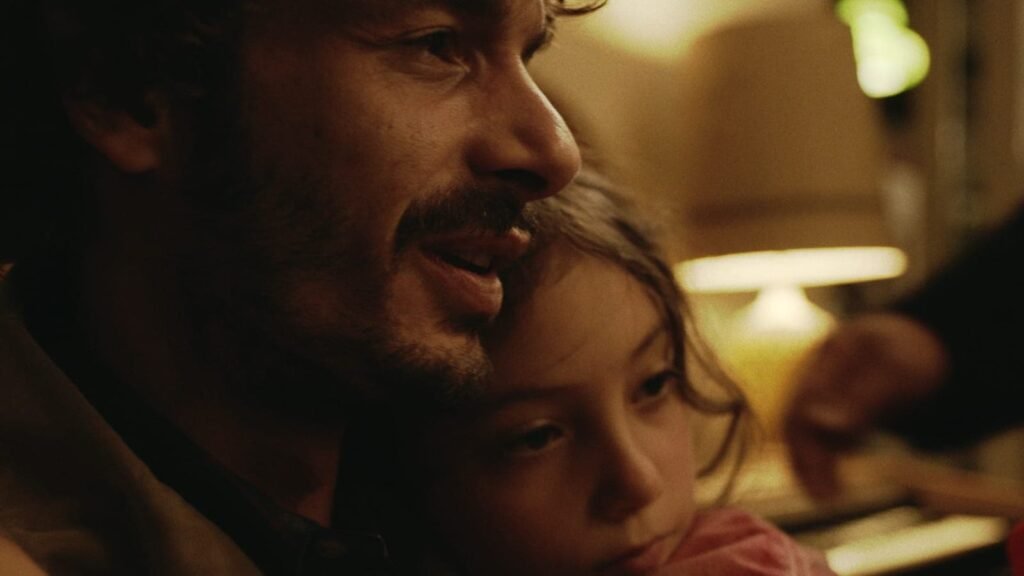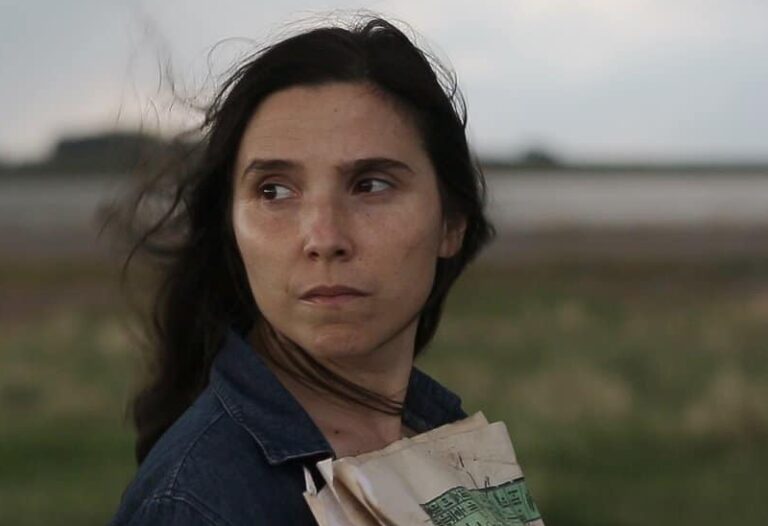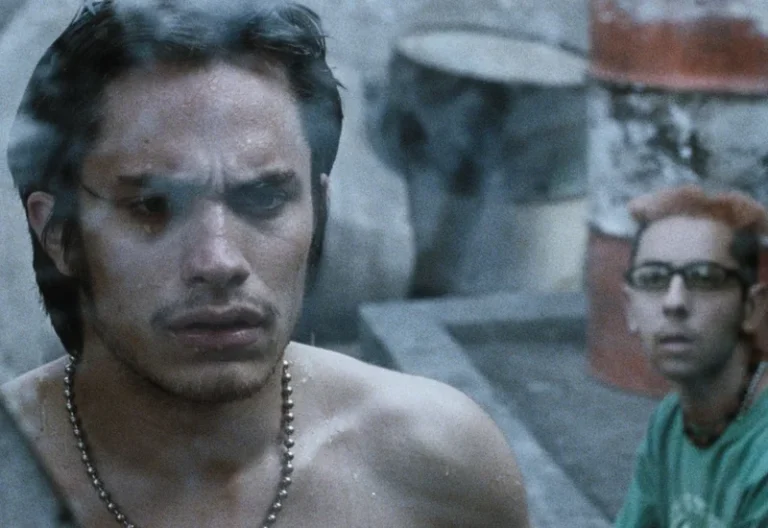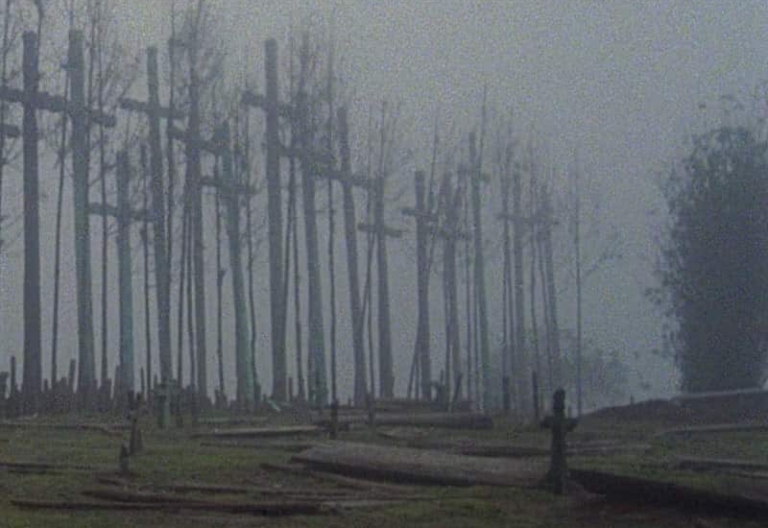tótem review
film by Lila Avilés (2023)
Sol (Naíma Sentíes), a 7-year-old girl whose father is dying of cancer, is the centerpiece in this single-location slice-of-life drama taking place over the course of an entire day. Encapsulating the chaos ensuing as Sol’s family prepares for her father Tona’s birthday party that evening, through her eyes we are taken through an immersive and private experience of one family’s search for an incurable sorrow as they give reasons to celebrate another birthday.
Review by: Aaron Jones | Filed Under: Film Reviews
May 10, 2024
Felt through the restless weight and unspoken understanding that this is the last time they will all be together with Tona, the film conveys the emotional peaks and anguish through its assemblage of family members. Though it is with the daughter Sol that the audience shares the most grief and that resonates with us more dearly as we experience her emotional process on a much deeper level.
Totem makes use of its title through Sol’s careful observance and preoccupation with nature and all living things. As her own grieving process evolves, so do her interactions with the natural world, finding beauty wherever life exists even in the face of tragedy. It exemplifies our own place within it, not as separate creatures, but intrinsically sharing the same cycles of life by observing the delicate balance amongst our own processes. In exploring this family’s grieving process within the intimate microcosm of their home, we emphasize the transition from life to death through the acknowledgment of spirituality. This process represents one of many diverse cultural components and communicates an almost sacred appeal through a celebration of life, showcasing the recognition of his loves and relationships, which are a testament to the father’s esteem.

Carrying a familiar and formless organic momentum that meshes wonderfully with its subtext and emotional semblance that are felt through all the characters’ preoccupations and reverberations, Totem does not aim to augment its fulcrum through the delivery of emotional peaks and chasms but confidently rests somewhere in between conveyed through realism. Effortlessly balancing life and death through touching examples, one where Tona’s father grants him a bonsai tree communicating the love and loss that he cannot express in words. The plant itself symbolizes the father’s care and admiration when words are too much to bear.
Another shows Sol asking Siri on a smartphone, “When will the world end?” A heartbreaking window into the soul of a little girl who is about to lose her father and imagines her whole world is now coming to an end. Her grandfather shares the same emotional anguish but each finds their own place amongst a bustling house of family members who have all probably confronted these moments within themselves that the film so tenderly and selectively depicts.
Totem centers itself on human relationships under the weight of having no control on how we compensate for our own helplessness in the face of inevitability. It gracefully depicts culture and grief with poetic and symbolic language and is another amazing film now under Lila Aviles’s achievements that she has so expertly crafted, rewarding its viewers through their own interpretations to find a totem within this deeply textured film.

Author
Reviewed by Aaron Jones. Based in California, he developed a passion for film from a young age and has since viewed over 10,000 films. His appreciation for the medium led him to film criticism, where he now writes for CinemaWaves, offering analysis of both contemporary releases and timeless classics. In addition to his work here, he has contributed to other publications as well. Feel free to follow him on Instagram and Letterboxd.
With the strange disappearance of Laura, two colleagues, her older boyfriend, Rafael, and Ezequiel, learn of their recent discoveries, which may help…
At a tiny Parisian café, the adorable yet painfully shy Amélie (Audrey Tautou) accidentally discovers a gift for helping others. Soon Amelie is spending her days as a matchmaker…
With the strange disappearance of Laura, two colleagues, her older boyfriend, Rafael, and Ezequiel, learn of their recent discoveries, which may help…
In the late 20th century, Mexico witnessed a cinematic renaissance that brought a new life into its film industry. This film movement, also known as Nuevo Cine Mexicano…
Film theory is the academic discipline that explores the nature, essence, and impact of cinema, questioning their narrative structures, cultural contexts, and psychological…
Third Cinema is a revolutionary film movement that emerged in the 1960s as a response to the dominant ideals of Hollywood (1st Cinema) and European art cinema…






